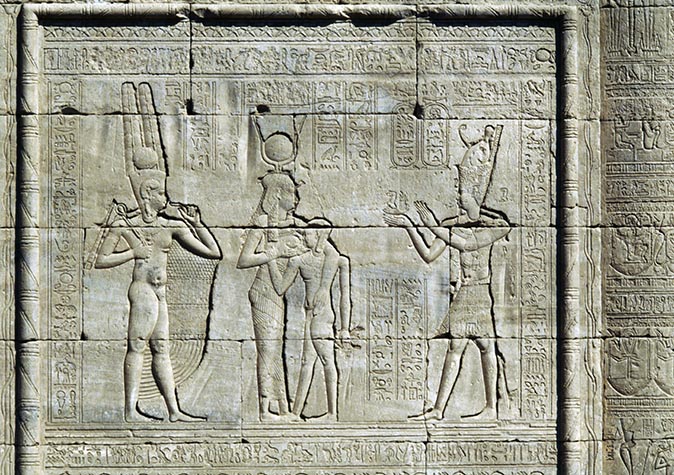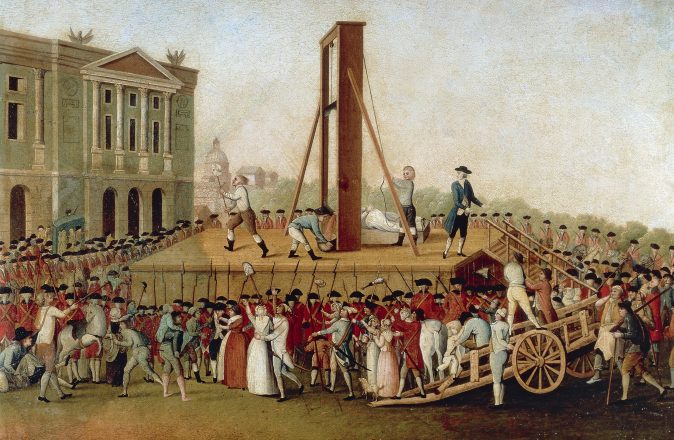Curious Questions: Why is a day divided into twenty-four hours?
We've been counting things in convenient chunks of ten for thousands of years, so why on earth is a day divided into 24 hours? Martin Fone, author of 'Fifty Curious Questions', investigates.


We are all slaves to time to some degree. It regulates our daily life, and, if you are not careful, it can take over completely.
It is a puzzling concept, not least because the way we notate the passage of time is rooted in a base twelve numeric system – that is to say, counting in batches of twelve. To those of us who are used to the base ten system – counting in batches of ten – it seems a tad archaic.
With a bit of it on my hands, I started to wonder why this was so.
The ‘culprits’, if you choose to think of them in that way, are the Sumerians, by way of the ancient Egyptians. Although it is clear from hieroglyphs dating back to as early as 3000 BC that Egyptians were using a base ten decimal counting system, they inherited and adopted a base twelve system from the Sumerians.
Why twelve? It was based on the three knuckles in each of the four fingers of your hand.
When they considered the concept of time, the Egyptians looked to the heavens. In particular, they tracked a series of thirty-six small constellations, known as decans, which rise consecutively over the horizon at approximately forty-minute intervals.
The rising of each decan marked the start of a new hour. A decade – a ten-day period – began with the appearance of a new decan in the eastern sky just before dawn.
Exquisite houses, the beauty of Nature, and how to get the most from your life, straight to your inbox.
By 2100 BC, the Egyptians had created a unified annual calendar consisting of thirty-six decades, constituting a 360-day year. This system proved accurate enough to predict the annual flooding of the Nile, so critical for their agricultural system.

During the New Kingdom (approximately 1550 to 1070 BC), the measuring system was simplified to use a set of twenty-four stars, twelve marking daytime and twelve night-time. Once the light and dark hours had been divided into twelve parts, the concept of a twenty-four-hour day was in place.
However, the length of each hour varied according to the seasons, and it was not until the Hellenistic period and in particular Hipparchus (active between 147 and 127 BCE) that the concept of a fixed-time period was developed.
Hipparchus proposed dividing the day into twenty-four equinoctial hours, based on the twelve hours of daylight and twelve hours of darkness observed on equinox days.
Despite this suggestion, laypeople continued to use seasonally varying hours for many centuries. Hours of fixed length became commonplace only after mechanical clocks first appeared in Europe during the fourteenth century.
Hipparchus and other Greek astronomers adopted astronomical techniques developed by the Babylonians, who operated a sexagesimal (base sixty) counting system.
And guess who they got it from? Right in one. The Sumerians.
Why they used a sexagesimal counting system is unclear, although it is convenient for expressing fractions. After all, it is the smallest number equally divisible by each of the first six numbers, as well as by ten, twelve, fifteen, twenty, and thirty.
Those who had a penchant for a decimal-based system made a couple of attempts to establish it. The French in 1793, imbued with revolutionary fervour, introduced French Revolutionary Time: a ten-hour day, with one hundred minutes an hour and one hundred seconds per minute. It was introduced officially on 24 November 1793 but was deeply unpopular and abandoned on 7 April 1795.

The French had another go in 1897. The Bureau des longitudes established the Commission de décimalisation du temps under the direction of a mathematician, Henri Poincaré, to devise a decimal system. As is the way with committees, it was a bit of a compromise, retaining the twenty-four-hour day but dividing the hour into one hundred minutes and the minutes into one hundred seconds. It didn’t gain much support, and the idea was quietly dropped in 1900.
Decimalisation has started creeping in by the back door. Clocks that track workers’ starting and finishing times use decimals to record parts of hours. And of course it is easier to denote a part of an hour with decimal notation if you are using a word processing package.
But it seems as though we are stuck with our antiquated system of denoting time. Blame the Sumerians, I say.
Martin Fone is author of 'Fifty Curious Questions', from which this piece is an excerpt – find out more about his book or you can order a copy via Amazon.

Curious Questions: Why do the British drive on the left?
The rest of Europe drives on the right, so why do the British drive on the left? Martin Fone, author

Credit: Alamy
Curious Questions: Why does freshly-mown grass smell so good?
Nothing says 'Spring is here' better than that wonderful aroma of newly-cut lawn. Martin Fone, author of 'Fifty Curious Questions',

Curious Questions: How do you make the perfect cream scone?

Credit: Alamy
Curious Questions: Do carrots really help you see in the dark?
We've all been given the familiar advice by parents anxious to get us eating our vegetables, but is there any

Credit: Photo by FLPA/Hugh Lansdown/REX/Shutterstock – Bullet Ant (Paraponera clavata) adult, standing on leaf in rainforest, Tortuguero N.P., Limon Province, Costa Rica
Curious Questions: What is the world’s most painful insect sting – and where would it hurt the most?
Can you calibrate the intensity of different insect stings? Martin Fone, author of 'Fifty Curious Questions', investigates.
After graduating in Classics from Trinity College Cambridge and a 38 year career in the financial services sector in the City of London, Martin Fone started blogging and writing on a freelance basis as he slipped into retirement. He has developed a fearless passion for investigating the quirks and oddities of life and discovering the answers to questions most of us never even think to ask. A voracious reader, a keen but distinctly amateur gardener, and a gin enthusiast, Martin lives with his wife in Surrey. He has written five books, the latest of which is More Curious Questions.
